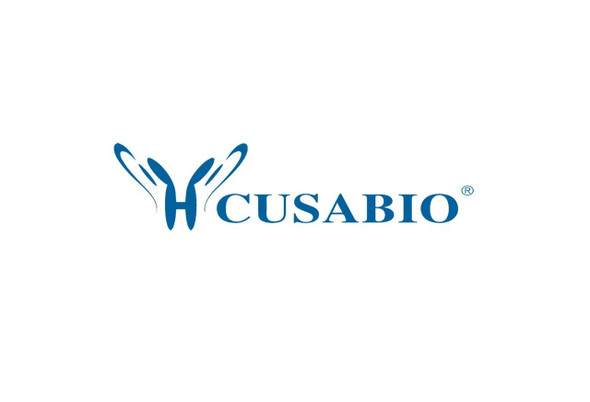Cusabio Virus & Bacteria Recombinants
Recombinant African cassava mosaic virus Replication-associated protein (AC1) | CSB-EP324434ADX
- SKU:
- CSB-EP324434ADX
- Availability:
- 13 - 23 Working Days
Description
Recombinant African cassava mosaic virus Replication-associated protein (AC1) | CSB-EP324434ADX | Cusabio
Alternative Name(s): 40.4KDA protein;Protein AC1;Protein AL1
Gene Names: AC1
Research Areas: Others
Organism: African cassava mosaic virus (isolate West Kenyan 844) (ACMV) (Cassava latent virus (isolate West Kenyan 844))
AA Sequence: MRTPRFRIQAKNVFLTYPKCSIPKEHLLSFIQTLSLQSNPKFIKICRELHQNGEPHLHALIQFEGKITITNNRLFDCVHPSCSTSFHPNIQGAKSSSDVKSYLDKDGDTVEWGQFQIDGRSARGGQQSANDAYAKALNSGSKSEALNVIRELVPKDFVLQFHNLNSNLDRIFQEPPAPYVSPFPCSSFDQVPVEIEEWVADNVRDSAARPWRPNSIVIEGDSRTGKTIWARSLGPHNYLCGHLDLSPKVFNNAAWYNVIDDVDPHYLKHFKEFMGSQRDWQSNTKYGKPVQIKGGIPTIFLCNPGPTSSYKEFLAEEKQEALKAWALKNAIFITLTEPLYSGSNQSHSQTSQEASHPA
Source: E.coli
Tag Info: N-terminal 6xHis-SUMO-tagged
Expression Region: 1-358aa
Sequence Info: Full Length
MW: 56.3 kDa
Purity: Greater than 90% as determined by SDS-PAGE.
Relevance: Essential for the replication of viral ssDNA. The closed circular ssDNA genome is first converted to a superhelical dsDNA. Rep binds a specific region at the genome origin of replication. It introduces an endonucleolytic nick within the conserved sequence 5'-TAATATTAC-3' in the intergenic region of the genome present in all giniviruses, thereby initiating the rolling circle replication (RCR). Following cleavage, binds covalently to the 5'-phosphate of DNA as a tyrosyl ester. The cleavage gives rise to a free 3'-OH that serves as a primer for the cellular DNA polymerase. The polymerase synthesizes the (+) strand DNA by rolling circle mechanism. After one round of replication, a Rep-catalyzed nucleotidyl transfer reaction releases a circular single-stranded virus genome, thereby terminating the replication. Displays origin-specific DNA cleavage, nucleotidyl transferase, ATPase and helicase activities .
Reference: Nucleotide sequence of cassava latent virus DNA.Stanley J., Gay M.R.Nature 301:260-262(1983)
Storage: The shelf life is related to many factors, storage state, buffer ingredients, storage temperature and the stability of the protein itself. Generally, the shelf life of liquid form is 6 months at -20?/-80?. The shelf life of lyophilized form is 12 months at -20?/-80?.
Notes: Repeated freezing and thawing is not recommended. Store working aliquots at 4? for up to one week.
Function: Essential for the replication of viral ssDNA. The closed circular ssDNA genome is first converted to a superhelical dsDNA. Rep binds a specific region at the genome origin of replication. It introduces an endonucleolytic nick within the conserved sequence 5'-TAATATTAC-3' in the intergenic region of the genome present in all geminiviruses, thereby initiating the rolling circle replication (RCR). Following cleavage, binds covalently to the 5'-phosphate of DNA as a tyrosyl ester. The cleavage gives rise to a free 3'-OH that serves as a primer for the cellular DNA polymerase. The polymerase synthesizes the (+) strand DNA by rolling circle mechanism. After one round of replication, a Rep-catalyzed nucleotidyl transfer reaction releases a circular single-stranded virus genome, thereby terminating the replication. Displays origin-specific DNA cleavage, nucleotidyl transferase, ATPase and helicase activities (By similarity).
Involvement in disease:
Subcellular Location: Host nucleus
Protein Families: Geminiviridae Rep protein family
Tissue Specificity:
Paythway:
Form: Liquid or Lyophilized powder
Buffer: If the delivery form is liquid, the default storage buffer is Tris/PBS-based buffer, 5%-50% glycerol. If the delivery form is lyophilized powder, the buffer before lyophilization is Tris/PBS-based buffer, 6% Trehalose, pH 8.0.
Reconstitution: We recommend that this vial be briefly centrifuged prior to opening to bring the contents to the bottom. Please reconstitute protein in deionized sterile water to a concentration of 0.1-1.0 mg/mL.We recommend to add 5-50% of glycerol (final concentration) and aliquot for long-term storage at -20?/-80?. Our default final concentration of glycerol is 50%. Customers could use it as reference.
Uniprot ID: P14982
HGNC Database Link: N/A
UniGene Database Link: N/A
KEGG Database Link: N/A
STRING Database Link: N/A
OMIM Database Link: N/A









